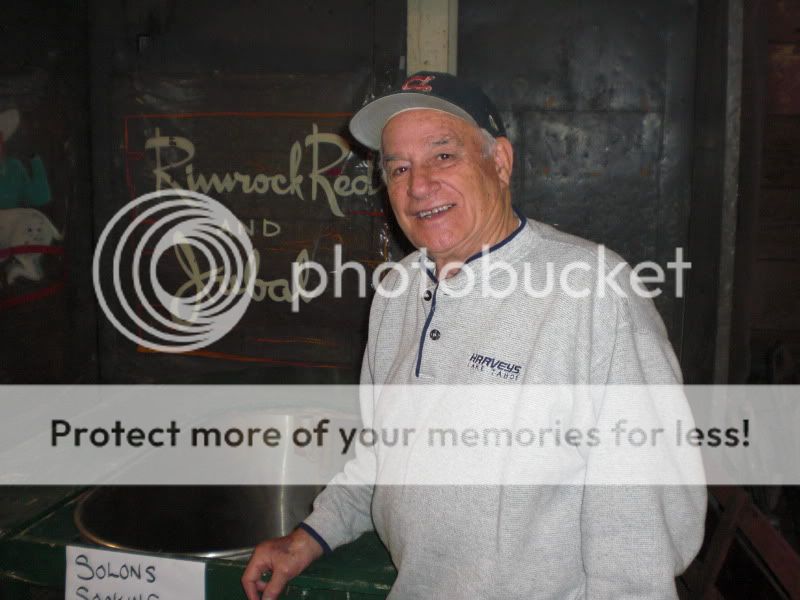I went to the Old Timers Lunch on Friday in Sacramento, to do interviews for my book on Joe Marty. It was a good day in my life. I did a couple of key interviews and also got to talk to a former Sacramento Solon named Gus Stathos.
Stathos, who I interviewed at the estate sale of former Solons owner Fred David in February, never played with Marty and was a career minor leaguer. The closest he came to making the show was when the Brooklyn Dodgers brought him to spring training at Vero Beach, Florida in 1947. Stathos played that spring with Jackie Robinson, who was weeks away from becoming the first black man in 83 years to play professional ball.
Stathos gave me a few minutes of his time on Friday, and I’ve provided excerpts from our talk below:
On how Robinson cleaned up at ping pong and horse shoes between workouts and games: “What he did, he used to sit around there with a bunch of guys and play horse shoes. You’d turn around, he beat everybody. Ping bong, he beat everybody. Basketball, he was great. Goodhearted guy, very nice, always spoke real good about everybody.”
On a story Robinson told that spring about treatment he got at a hotel in New Orleans: “He went in to check into the room. There was about fifty or sixty guys there, and the young kid who was behind the counter, he says, ‘I’m sorry,’ he said, ‘We don’t take black people here for our hotel.’ So Pee Wee Reese says– he came forward, Pee Wee Reese– and Eddie Stanky came forward says, ‘Well, if he can’t stay here, we’re not going to stay here.’ So Jackie Robinson heard that, he came up, and he said, ‘Hey, you guys don’t worry about it, I’ll go to a black town and get a room, and I’ll see you guys at the ballpark.’ That’s the kind of a guy he was.”
On if he had a good idea if Robinson would break the color barrier that year: “He was a great guy and a great ballplayer. I thought he was great, I really did, I really liked him. Everybody loved him.”
On whether he had other conversations with Robinson: “Well, as soon as he knew I was from California, cause he was from LA you know….”
On whether Robinson had an opinion on Stathos’s hometown, Sacramento: “I don’t think he even knew where Sacramento was, to be honest with you.”
On Robinson as a player: “I just loved the way he ran. He was pigeon-toed, you know, and he could run– and he could run. He had a lot of guts. He’d steal every base there was and… I thought he was a great ballplayer, I really did. And I’m glad that he made the Hall of Fame, I’m glad he did what he did, and I can say that I was at spring training with him.”
